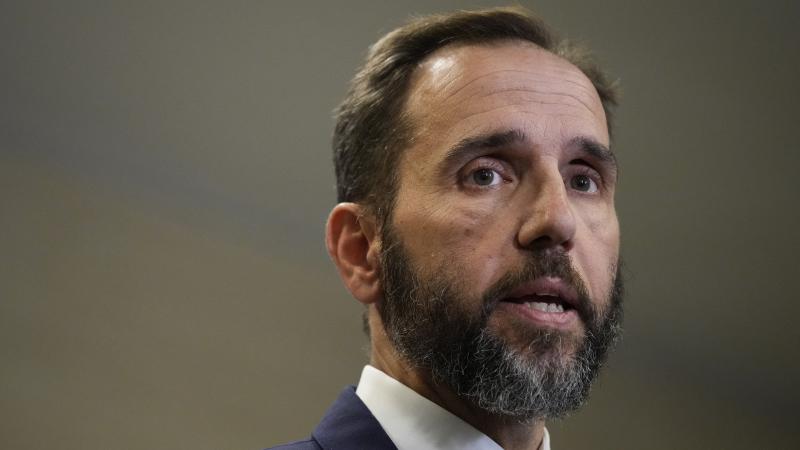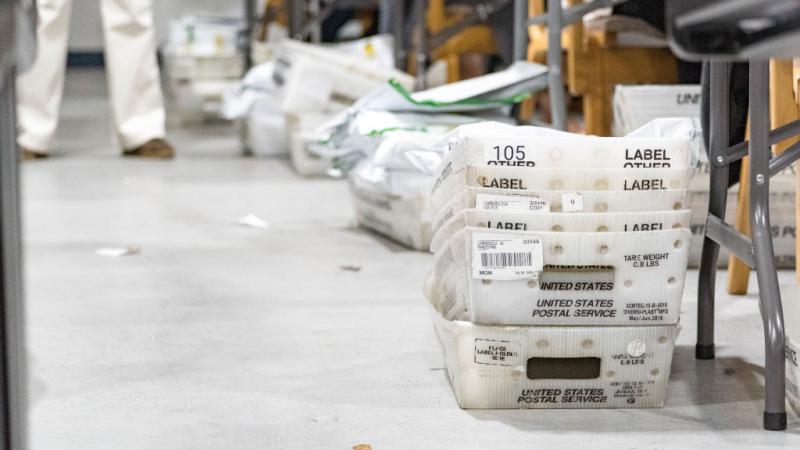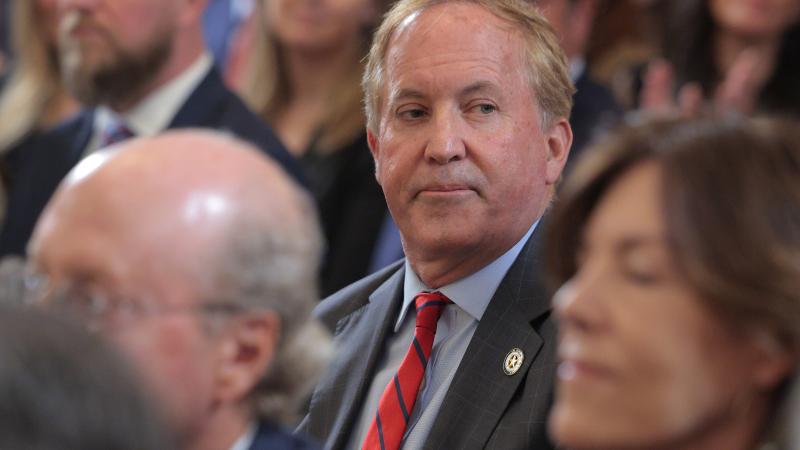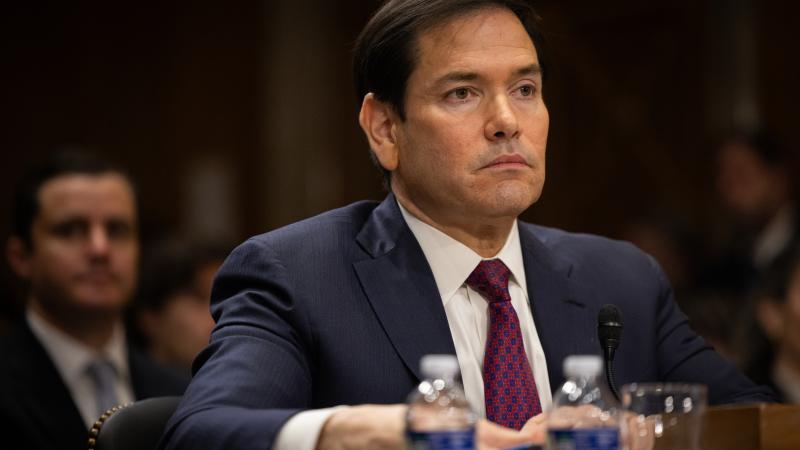After John Durham bombshell, judge breathes new life into Clinton Foundation whistleblower case
U.S. Tax Court asks for new motions this summer from whistleblowers, IRS in aftermath of precedent-setting rulings.
Just a few weeks after Special Counsel John Durham revealed significant failures to investigate allegations against Hillary Clinton’s family charity, a U.S. Tax Court judge has once again breathed new life into a years-long whistleblower case alleging IRS improprieties involving the controversial Clinton Foundation.
U.S. Tax Court Judge David Gustafson has already once before denied an IRS request to dismiss the whistleblower case, first brought in 2017. And three years ago, he ordered the tax agency to reveal whether it criminally investigated the foundation, citing a mysterious "gap" in its records.
The IRS filed a new motion to dismiss, and all parties filed arguments over the last year. But on Monday, Gustafson postponed ruling on those motions, instead asking for new arguments in light of three recent precedent-setting court rulings, once again frustrating IRS efforts to make the case go away.
The three recent rulings in other tax cases "may affect the parties’ positions as to the pending motions," Gustafson wrote. "We will order further filings so that the parties may address those recent opinions."
The judge gave whistleblowers John Moynihan, a former federal agent, and Larry Doyle, a corporate tax compliance expert, until June 30 to update their arguments and the IRS until July 28 to respond. That means the case will almost certainly stretch on for many more months.
The judge also noted the IRS hasn’t responded to a request to update the court record with new evidence.
Monday’s ruling adds new intrigue in a case that first surfaced nearly five years ago when Doyle and Moynihan, two respected forensic financial investigators, revealed the existence of their 2017 IRS whistleblower complaint against the foundation during a congressional hearing.
Moynihan and Doyle testified to a House committee in December 2018 that they believed the foundation wrongly operated as a foreign lobbyist by accepting overseas donations, then trying to influence U.S. policy.
The foundation "began acting as an agent of foreign governments early in its life and throughout its existence," Moynihan testified at the time. "As such, the foundation should've registered under FARA (Foreign Agents Registration Act). Ultimately, the foundation and its auditors conceded in formal submissions that it did operate as a (foreign) agent, therefore the foundation is not entitled to its 501c3 tax-exempt privileges as outlined in IRS 170 (c)2."
The foundation has acknowledged that past internal audits revealed compliance problems with some of its practices but insisted those have been fixed and that it always complied with the law, strongly disputing the whistleblowers' allegations.
In October 2020, Gustafson first allowed the whistleblower case to proceed, rejecting an IRS motion for summary judgement. He cited nonpublic evidence the FBI and IRS may have worked jointly on a criminal investigation focused on the foundation. Months later, the judge suggested the IRS whistleblower office may have evidence it had not disclosed to the court in the case.
"There are facts and information, uniquely within the knowledge of the Whistleblower Office that need to be considered in connection with the resolution of the petitioner's claim," he wrote in May 2021.
Some of that evidence burst into public earlier this month when Durham divulged in his 306-page final report that the FBI had four ongoing investigations during the 2016 election into Bill and Hillary Clinton’s business and philanthropic activities. The probes involved the bureau's Washington, New York and Little Rock, Ark., field offices.
Three of those probes were started during the 2016 election and were focused on allegations that the foundation was at the center of "criminal activity" that included "fraud and corruption allegations."
One of those most serious allegations was that a corporate industry "likely engaged a federal public official in a flow of benefits scheme, namely, large monetary contributions were made to a non-profit, under both direct and indirect control of the federal public official, in exchange for favorable government action and/or influence," Durham wrote.
"Beginning in late 2014, before Clinton formally declared her presidential candidacy, the FBI learned from a well-placed [source] that a foreign government was planning to send an individual to contribute to Clinton’s anticipated presidential campaign, as a way to gain influence with her should she win the presidency," he also said.
All four of the probes were shut down as the 2016 presidential election was drawing to a close, and senior FBI and Justice Department officials were involved in the effort to slow or stop the probes, Durham wrote, based on evidence he collected from cooperating FBI agents.
"Both senior FBI and department officials placed restrictions on how those matters were to be handled such that essentially no investigative activities occurred for months," he noted.
You can read the Durham report here.
Judge Gustafson’s new request gives Moynihan and Doyle a fresh opening to incorporate Durham’s bombshell allegations in their court filings due next month.
The judge also called attention to a specific recent ruling in a Tax Court case titled Berenblatt vs. IRS Commission that he said might be relevant.
In that ruling last week, the court decided that IRS whistleblowers may be entitled to discovery they ordinarily would not be granted if they could show the agency had engaged in earlier bad faith conduct to keep information out of the case.
"Whistleblowers may be granted limited discovery if they make a significant showing that there is material in the IRS’s possession indicative of bad faith on the IRS’s part in connection with the case or of an incomplete administrative record compiled by the IRS," the court ruled.















